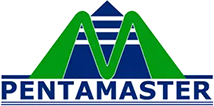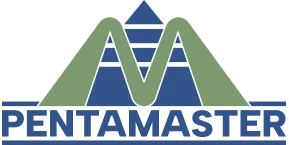Code of Ethics
PENTAMASTER INTERNATIONAL LIMITED
檳傑科達國際有限公司
(Incorporated in the Cayman Islands with limited liability)
(Stock Code: 1665)
CODE OF ETHICS
Pentamaster International Limited (the “Company”, “PIL”, “we” or “our”) Code of Ethics reflects the Company’s existing culture and serves as a guide for our directors, managers and employees in their daily activities. It describes the values, principles and practices that guide business conduct in PIL and its subsidiaries. This code reflects the objective of management to reinforce company-wide ethical standards and to sustain a work environment that fosters integrity, caring, respect and professionalism. It is the conviction of management that the long-term interest of the company are best serves by following the policy strictly to be lawful, highly principled and socially responsible in all business activities.
This code is applicable to all employees worldwide as well as to the members of PIL’s board of directors.
-
Compliance with Laws, Rules and Regulations
PIL endeavors to conduct its business in compliance with applicable laws, rules and regulations and in accordance with high ethical principles. The Group’s reputation for integrity, quality and honesty is based on this commitment and helps to ensure its long-term success.
-
Corporate Responsibility
PIL is dedicated to operate in a manner that is economically, socially and environmentally responsible.
PIL is committed to the principles of sustainable development. It strives to make efficient use of natural resources and minimise the environmental impact of its activities and products over their life cycle.
The health and safety of all employees, neighbours, customers, end users and others affected by PIL’s business activities as well as the protection of the environment, have high priority.
-
Anti-corruption
PIL is opposed to corruption and bribery and does not tolerate practices that seek to obtain business through improper means. Neither PIL employee nor PIL employees’ immediate family members is allowed to offer, received or accept any kind of benefit to or from business partners, government officers, customers and vendors which might compromise, or appear to compromise, the ability to make objective and fair business decisions.
-
Insider Trading
PIL requires its employees to refrain from insider trading. This applies in particular to employees who have access to non-public information about PIL, its subsidiaries or affiliates or about a company with which the Group does business. Such inside information may relate to, for example; plans, design, new products or processes; mergers, acquisitions or divestment of business or securities; problems facing PIL or a company with which it does business; sales; profitability; negotiations relating to significant contracts or business relationship; significant litigation; or financial information.
If the information is such that a potential investor would consider it significant in reaching an investment decision, the employee who holds the information should not buy or sell PIL securities, nor provide it to others, until it becomes public.
-
Discrimination and Harassment
PIL is a social responsible employer and recognises its employees as a great strength. The Group seeks high commitment from its employees and in return it shares business success with them. PIL is committed to provide a work environment that values diversity and riches of various cultures. Human Resources policies and activities of the PIL Group should contribute to create a workplace where every individual has the opportunity for professional and personal growth. PIL respect each individual and promotes an open exchange of views, positive criticisms and ideas.
PIL is committed to provide equal employment opportunity to all individuals and does not tolerate illegal discrimination or harassment of any kind. Threats or acts of violence and physical intimidation are forbidden. The use of illegal drugs and alcohol in the workplace is not tolerated.
Various types of discrimination and harassment which occur at work can be based on the following:
• Race, ethnic origin, nationality or skin color • Gender and/or sexual orientation • Religious or political convictions • Membership or non-membership of a trade union • Disabilities, illness, sensory impairments or learning difficulties • Age This list is not exhaustive.
-
Conflict of interest
A conflict of interest exists when a person has a private interest that differs from that of PIL. In conflict situations, the interest of the Group must not be compromised.
Conflict of interest can arise in many situations including the following which require special attention:
• Employees should not receive improper personal benefits as a result of their positions in the PIL Group, or otherwise gain personal enrichment through their access to confidential information. • All employees have a duty to advance the legitimate interest of PIL when the opportunity to do so arises. They should not take advantage of opportunities or use corporate property, information or their position for personal gain, nor compete with the Company directly or indirectly. • Employees should not serve as directors, managers, employees, advisers or agents of any outside business organisation that would adversely affect their motivation or performance, unless such service is specifically approved by the Company. • PIL encourages its employees to engage in community service in their local communities and in charitable activities. However, it must be ensured that all outside activities, even charitable or sports activities do not constitute a conflict of interest and are not inconsistent with their employment by the Company. Any conflict or potential conflict of interest should be reported and discussed with appropriate department manager.
-
Non-solicitation and Non-competition
PIL employees shall not directly or indirectly or through any immediate family member during the term of employment and for a period of three (3) years after the termination of his/her employment with the company:
• Either solely or jointly with or on behalf of any person direct or indirectly carry on or be engaged or interested in any competing business of which the principal activity and related technology involving techniques, know-how or methods developed at or for the PIL Group. • Solicit the customer of any person who is or has been at any time during the term of this Agreement a customer of the Company or the PIL Group for the purpose of offering to such customer goods or services similar to or competing with those of the Company or the PIL Group. • Solicit or entice away or endeavor to solicit or entice away any director or employee of the Company or the PIL Group. • Cause or permit any person directly or indirectly under his control to do any of the foregoing acts or things. -
Record-keeping and Reporting
PIL applies the highest standards in the recording of information. All business records must be maintained for the periods specified in PIL record retention policy or the more specific government rules and regulations.
All reports, statement and records, whether held electronically or in print, must reflect the actual events and transaction accurately. Dishonest reporting within the Company, or to organisations or persons outside the Company, is strictly prohibited.
-
Protection and Proper use of Assets.
Collectively, employees have a responsibility for safeguarding and making proper and efficient use of PIL property. Each employee has an obligation to protect PIL property from loss, damage, theft, embezzlement or destruction.
Any situations or incidents that could lead to such result should be reported by employees immediately to their superior or manager.
-
Confidentiality and Privacy
Information is one of PIL most valuable corporate assets. An open and effective dissemination of information is critical to its success. However, much of the Group’s business information is confidential or proprietary, and such confidentiality must be maintained except when disclosure is authorised by PIL or required by laws or regulations.
This apply specifically to intellectual property, such as trade secrets, patents, trademarks, and copyrights, as well as business, marketing and service plans, engineering and manufacturing know-how, designs, inventions, database, records, salary information or any unpublished financial data and reports.
It is PIL policy that all personal information on employees, customers, business partners or suppliers be used diligently and treated confidentially, respecting fully all privacy rights. The protection of such information is of the highest importance and must be discharged with the greatest of care to merit the continued confidence of the persons concerned.
Therefore, the employee acknowledges the following:
• During the course of employment with the Company, the employee may become acquainted with or have access to the Confidential Information, and agrees to maintain the confidence of the Confidential Information and to prevent its unauthorised disclosure to or use by any other person, firm or company. • The Employee agrees not to use the Confidential Information for any purpose other than for the benefit of the Company during or after his or her employment with the Company. • The Employee shall not remove the Confidential Information or any physical things, reproduction, copy, duplicate replica or summary thereof from the premises of the Company without the written consent of the Company regardless of whether any such item or information therein or thereon was prepared, produced or authored by the Employee. • The Employee shall not, for whatever reason, appropriate, copy, memorise or in any manner reproduce (or reverse engineer) any of the Confidential Information. The Employee shall forthwith notify the Company if the Employee is or becomes aware of any misappropriation of documents or misuses by any person of the Confidential Information. • The Employee agrees to promptly and without request return any or all Confidential Information on termination of employment with the Company for any reason. The Employee shall surrender all materials, documents, drawings files, records, specification and other physical things containing or evidencing any Confidential Information. -
Safety
PIL strives to ensure the health and safety of each of its employees, customers and visitors by maintaining a workplace that is free of unsafe and/or hazardous conditions. PIL has established a Safety Committee and ERT to organise safety programs which includes procedure for correcting unsafe conditions and for responding to emergency situations.
-
Professionalism
PIL employees are committed to the highest standard of professionalism with each employee pursuing innovation, deploying imagination, opening to new ideas and acting decisively and consistently. We are determined to deliver outstanding quality so that our relationship with our clients will be long lasting and close.
-
Propagate
PIL employee shall not do or cause anything, which will affect the standing and reputation of the Company. The employee shall also maintain a harmonious and respectful relationship with one another, to protect and preserve PIL to the best of his or her ability, not to propagate verbally or in writing, without prior approval of the Executive Chairman anything that is contentious, controversial and detrimental to the good name and image of PIL or any of PIL employees. This includes spreading rumours, gossip, bad mouth and negative criticism.
-
Accountability
All employee as well as members of the board of directors are required to comply with the standards set forth in this Code. Violations of the Code will lead to consequences. In serious cases, such consequences may include termination of employment.
-
Concerns and complaints
If any employee has concerns or complaints about the matters covered in this code, including possible violations of the code, he or she should submit them promptly to their superior for resolution. This can be done anonymously, confidentially or otherwise. If the resolution is not satisfactory to the employee or he/she feels it is not appropriate to address the concern or complaint to their superior, it should be submitted to Human Resources Department or if this is not practical, to the Executive Chairman.

